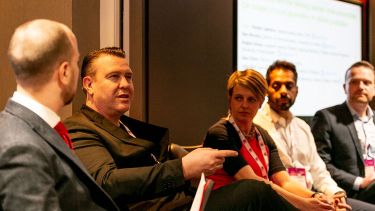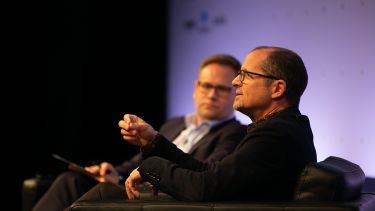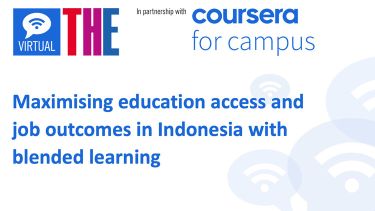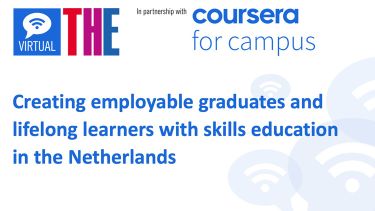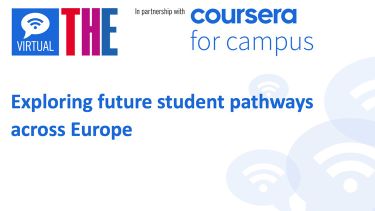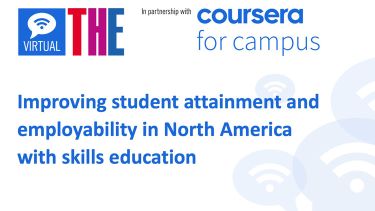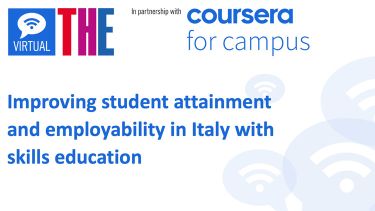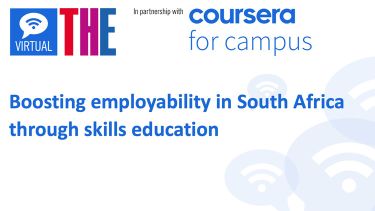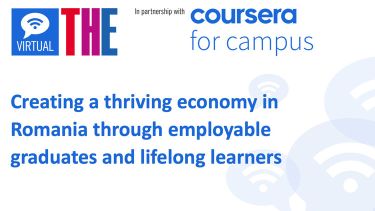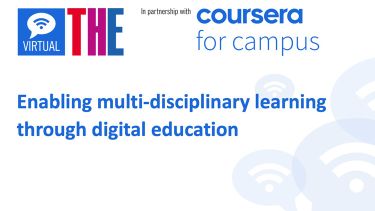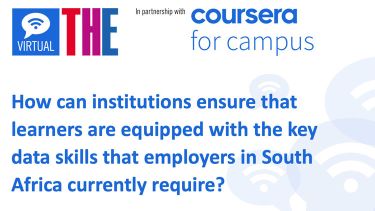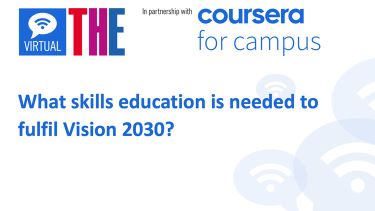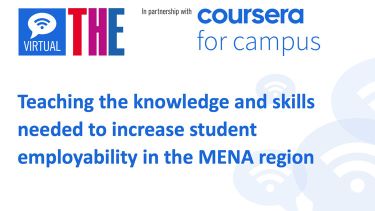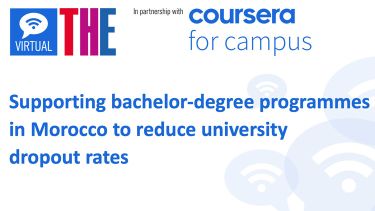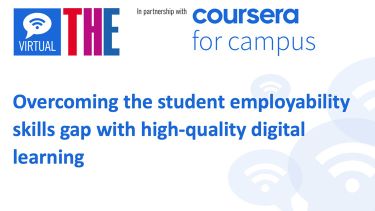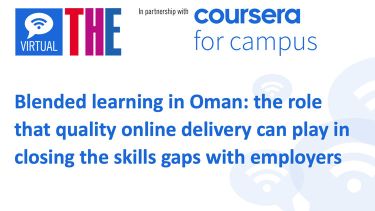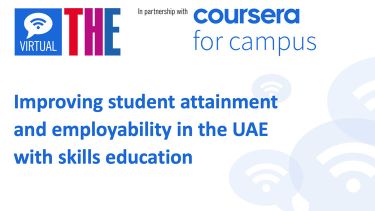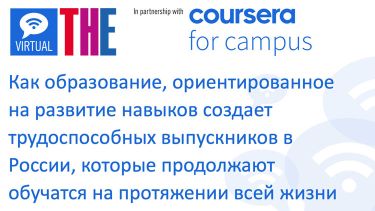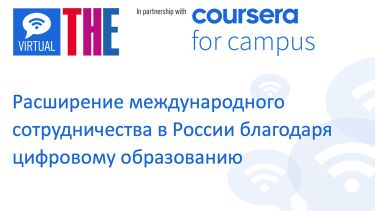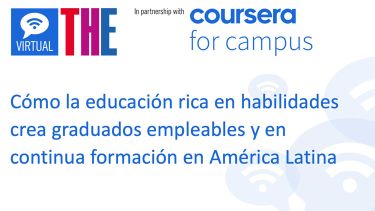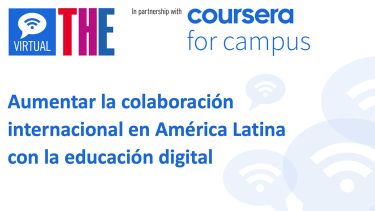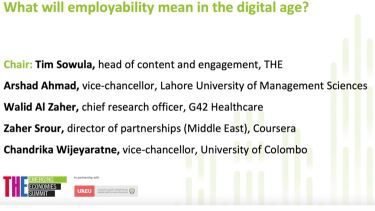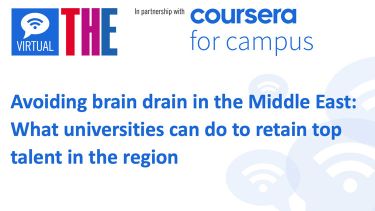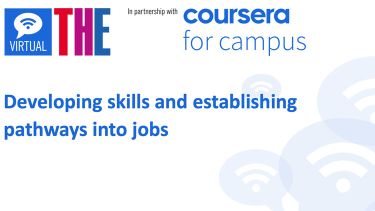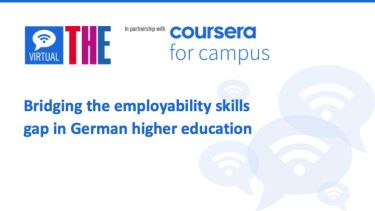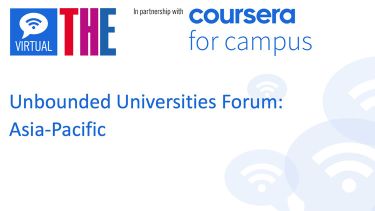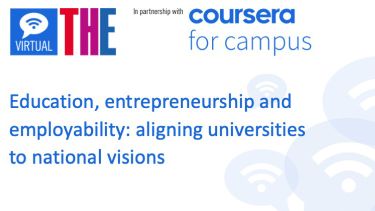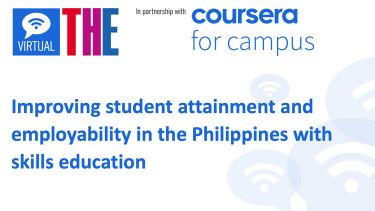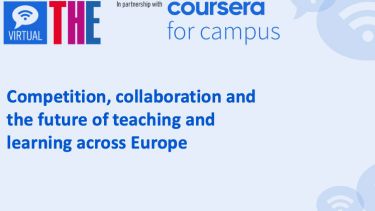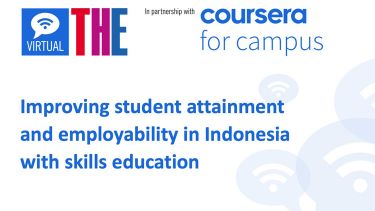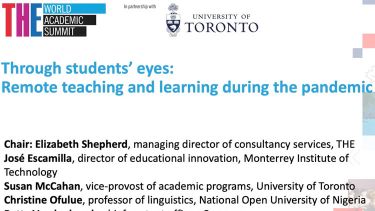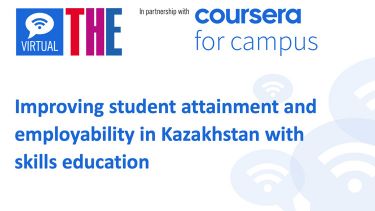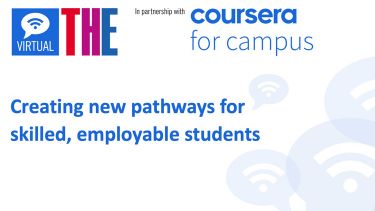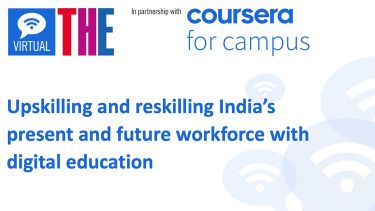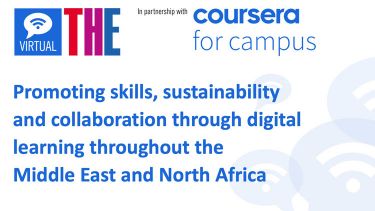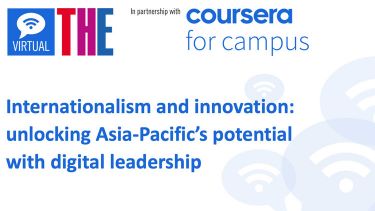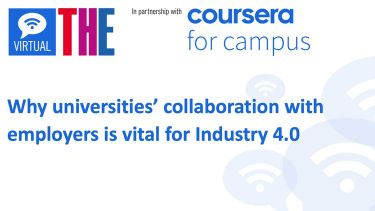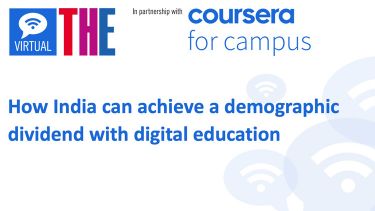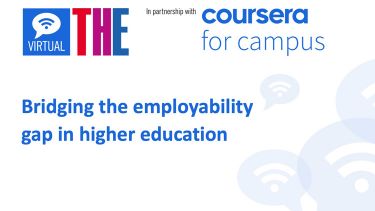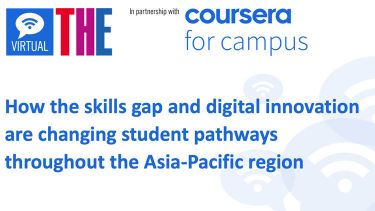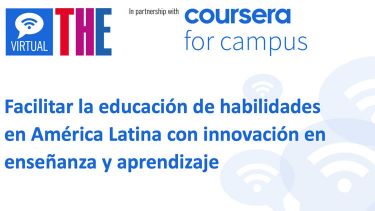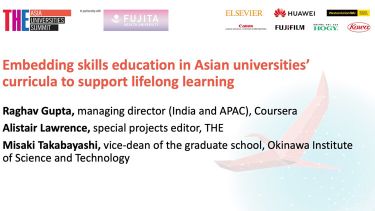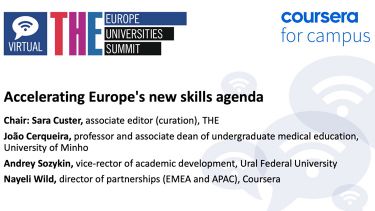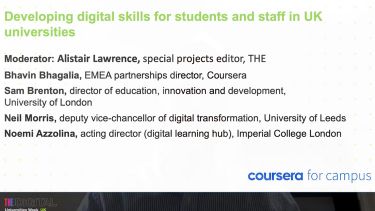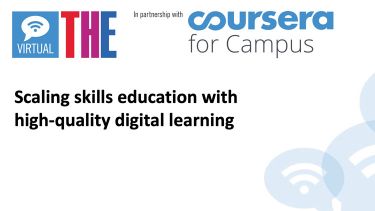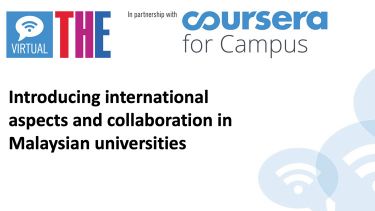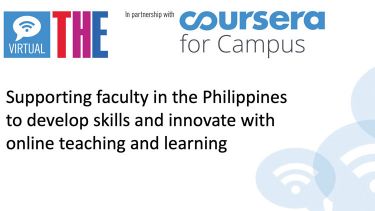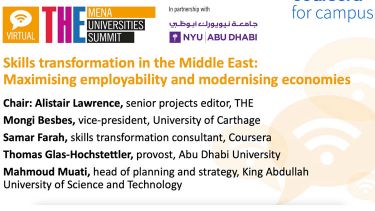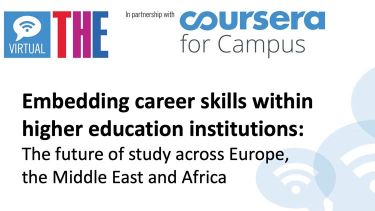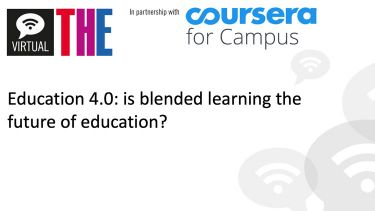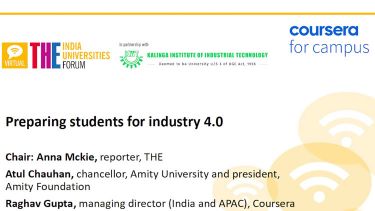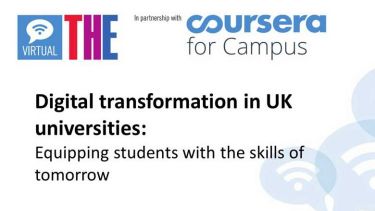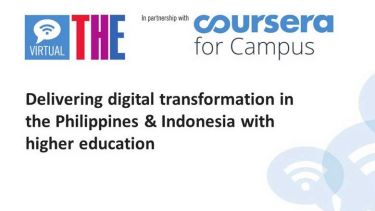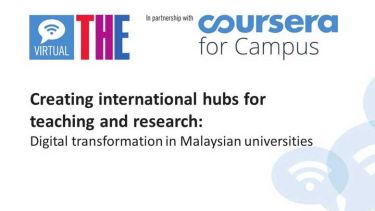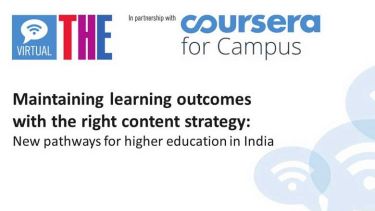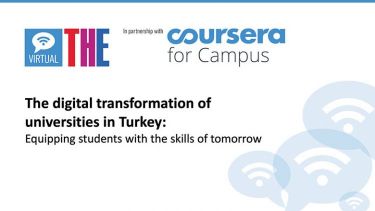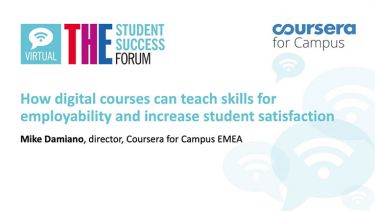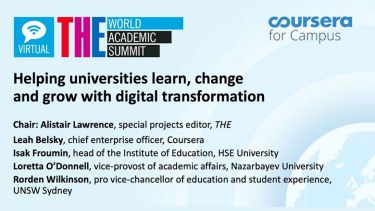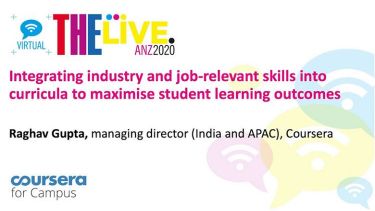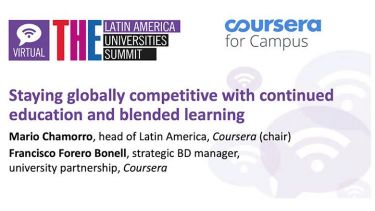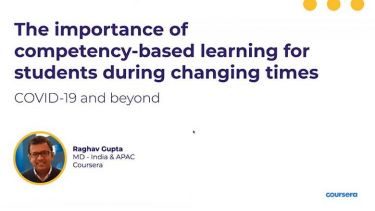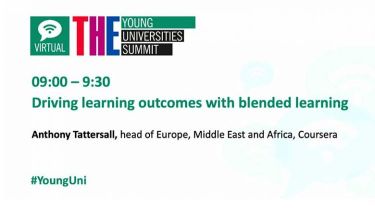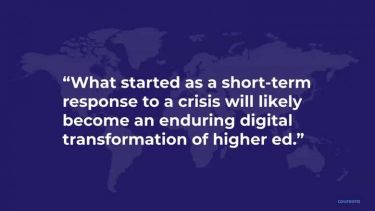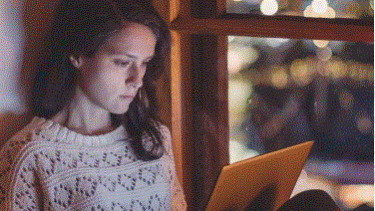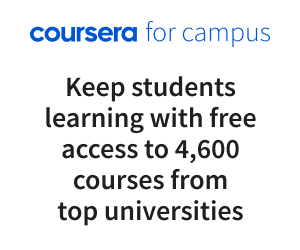Industry experts warn universities must embrace the digital age or face an uncertain future
Universities must design more collaborative course offerings and listen to the demands of students to survive in the digital-first world; this was the panel’s verdict at a recent THE Live UK session focused on how digital collaboration is changing the roles of teachers and students.
Pointing out how the Covid-19 pandemic has accelerated the pace of digital transformation, chair Anna McKie, a reporter at Times Higher Education, asked how this had changed the way courses are designed and delivered.
Sam Brenton, director of education, innovation and development at the University of London, said that the “Herculean effort” the sector had made in rapidly shifting online signalled a new approach to teaching and course design.
“We now, like many others, have a learning design approach where each module is made by a range of experts working together with the central partnership between the academic expert – the teacher – and the learning designer,” Brenton said. “That in itself is a big shift from the old model, where the academic was the author, the course designer, the writer, the editor, in some ways the oracle. You’d write, direct and star in your own movie.”
Anthony Tattersall, vice-president (EMEA) at Coursera, said the company worked with nearly 4,000 institutions and found that students expected courses to deliver job-ready skills with the flexibility to study away from campus. He said that those universities that refused to evolve faced an uncertain future.
“The idea that the university has to originate everything themselves I think is starting to change. A university can be a steward and a curator of best-in-class content from around the world but accept that third parties can deliver content that is not in their core areas of excellence,” Tattersall said. “I think there’s going to be a seismic shift in how universities are perceived. And it’s decisions that are made now that have those very far-reaching consequences.”
When asked how institutions can adapt to new approaches to learning, Stephen Heppell, professor of learning innovation at Camilo José Cela University, said the answer was clear. “The only way we’re going to go forward is to ask the students. If we don’t ask the students, they’ll ask themselves and they’ll decide where to go. And we’ll be the department stores, there’ll be an Amazon,” he said. “In all honesty, I think we’re going to lose some universities around the world. It’s really urgent. People talk about co-creation and co-construction – this is learner-led, learner-built.”
The entire session is available above and on the THE YouTube channel. You can also access all the THE Live UK material here.
Find out more about Coursera.



